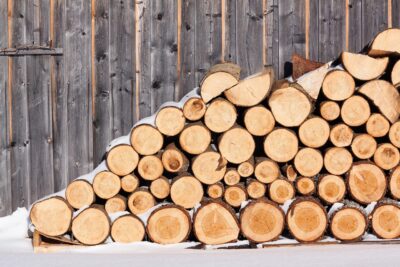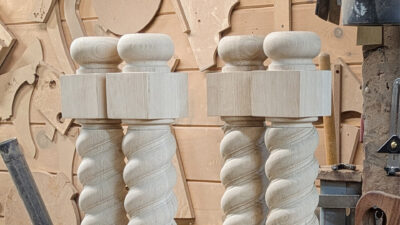West Coast Trends May 2025 – White Oak Continues To Be Most In Demand Specie Across West Coast
Sources that were contacted across the West Coast region at the time of this writing differed as to how their sales were doing. One source stated that the market that he sells into continues to seem pretty strong. Another source noted that while their sales aren’t bad, they aren’t what he would like for them to be.
In California, a lumberman said that his sales have remained consistent, and he stays order to order. “We have remained very consistent over the past six months,” he stated when asked how his sales at the time of this writing compared to just six months ago.
His company offers Hickory, White Oak and Walnut in 4/4 thickness and in grades FAS and Nos. 1 and 2 Common. He noted that White Oak is currently selling the best for him and his company.
He sells to end use manufacturers, distribution companies and flooring manufacturers. “My customers have let me know that their sales have started to pick up over the past couple of months,” he mentioned, adding that the order forms that he is having to fill reflect the uptick in his customers’ sales.
When asked if any tariffs have started to impact his business, he said that while he hasn’t felt any direct side effects of them, he also isn’t sure how or when he will feel them.
He mentioned that he remains optimistic for how his sales will continue to go over the course of the year and believes that he and his customers will start to get busy again.
A lumber spokesperson in Oregon stated that his supply is steady and that his marketplace is strong. When asked if he was doing better or worse than he was six months ago, he noted that his sales have remained steady over the course of the past several months.
His company offers Alder, Cherry, Hard and Soft Maple (White and Brown), Red and White Oak (Rift, Quarter Sawn and Plain Sawn), Walnut, Poplar and Hickory in thicknesses of 4/4, 6/4 and 8/4 and in grades Select and Better and FAS. “Poplar is our best seller right now because it is paint grade, but our most in demand specie is White Oak,” he stated when asked if one of the species that he offers is selling better than the others.
He sells to cabinet, furniture and door and drawer manufacturers. “We have noticed over the years that less and less of our cabinet manufacturing customers are building their own door and drawer fronts, and that they are buying these components from giant manufacturers instead,” he said. “So, we aren’t necessarily selling less lumber, but we are selling it to fewer customers.”
He noted that while the challenges his company has faced over the past few years with labor have gotten better, that there is still an issue with finding new employees with industry experience.
His company doesn’t import or export lumber, but they do import other products, such as plywood. “I’m not sure how the products we import will be affected,” he said. “But whether the prices go up on products directly because of tariffs, or if prices go up on domestic products in order to curtail an increase in demand, there will be a noticeable impact on our market, at least in the short term.”
In Washington a lumber representative said that his sales aren’t where he would like for them to be. “We aren’t doing worse than we were six months ago,” he stated. “This isn’t really a bad thing, but it doesn’t put us where we want to be as a company.”
His company offers Red and White Oak, Poplar, Hard and Soft Maple and Walnut in all grades and thicknesses. “Poplar is currently selling best for us,” he said. “It’s been between Poplar and Rift White Oak for a while now.”
He sells to distribution yards and millwork shops. “Most of our customers were very positive coming into this year, but now it seems that everyone is very much stunned, ‘deer in the headlights,’ if you will,” he noted. “Because of all of the optimism at the beginning of the year sales started off really well, but it seems sales are starting to wane.”

He said that the uncertainty of the tariffs has derailed their imports and exports, stating that they have had to pause all of their imports. “Everyone is starting to scramble. This uncertainty has hindered us from making any sort of strategic plan,” he said. Despite not knowing what’s to come and being unable to prepare, he is certain that his company will be able to roll with the punches and will figure it out along the way.







